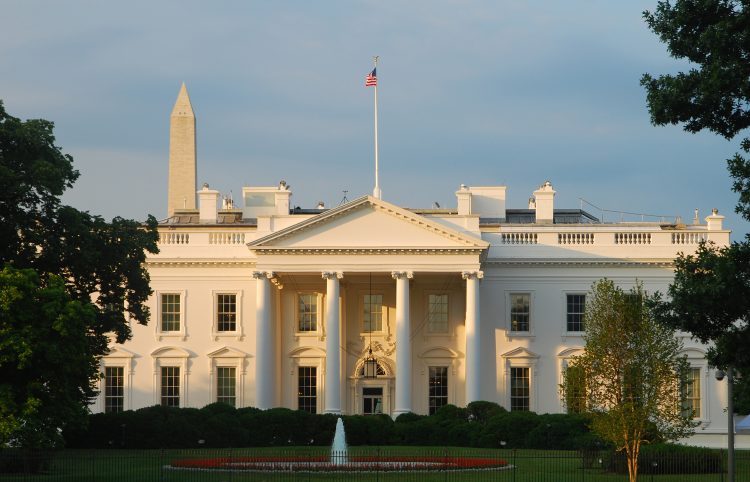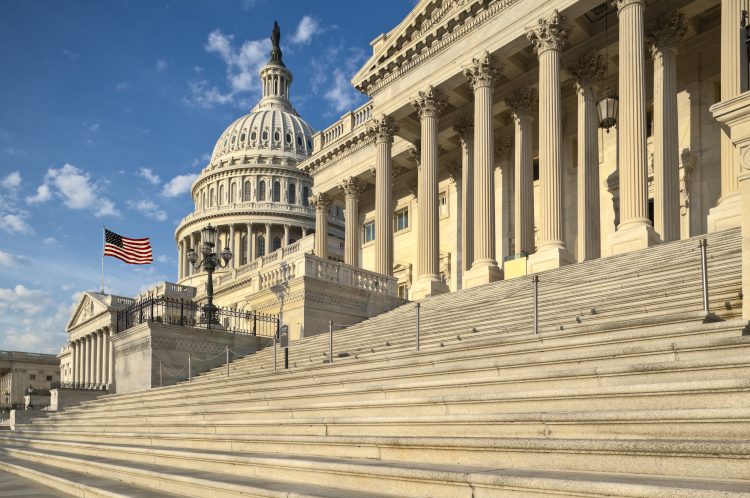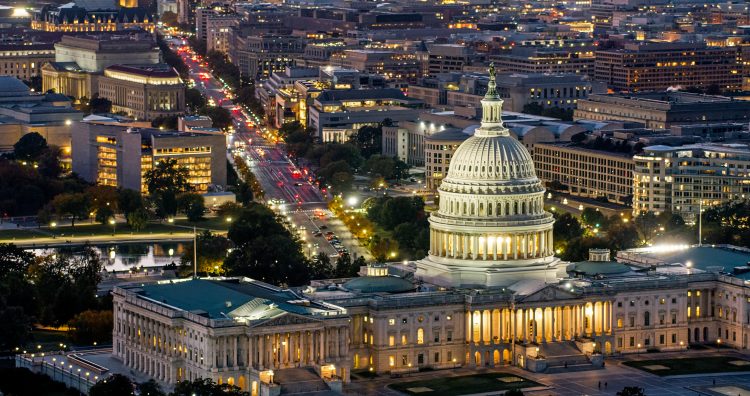This week on Facing the Future, in honor of tax season, we take a look at federal revenues and the Congressional budget making process, as both are in need of some serious adjustment. Joining us in this discussion were two budget and tax experts: Howard Gleckman, senior fellow at the Urban Brookings Tax Policy Center, and Tom Kahn, a Distinguished Faculty Fellow at the Center for Congressional and Presidential Studies at American University. Tom also spent nearly 20 years as Democratic staff director for the House Budget Committee and played a role in negotiating the federal government’s last balanced budgets from the end of the 1990’s to 2001. Joining me for the program were also two other Capitol Hill veterans: Concord Coalition policy director Tori Gorman and chief economist Steve Robinson.
Federal revenue collections were particularly strong in 2022, and helped the Biden administration claim it had significantly reduced the annual deficit last year as compared to the previous year. While there is plenty of room for skepticism about deficit reduction claims on the spending side with the waning COVID emergency, Gleckman warns against being lulled into complacency by better than average revenue numbers last year.
“There were a few things going on, one of them of course was inflation, which raised wages, which increased collections from both the federal income tax and the payroll tax,” said Gleckman. “Corporate profits were still good. People were worried about whether the economy was going to fall into recession. It didn’t, so corporate profits were strong. So we had a good year. I am always hesitant to predict where revenues are going to go, because people were wrong last year. It’s hard to imagine that revenue growth will be as strong in the coming year as it was. But I think the main point is that even if it is, we are still going to fall vastly short of generating enough revenue to pay for the government that we seem to want. With the current tax system in place, we’re never going to get there. We are spending 24% of GDP (Gross Domestic Product) over the next decade and we’re generating 18% of GDP in revenues. That doesn’t add up.”
As Gleckman points out, those numbers assume that the individual portions of the 2017 tax cuts enacted during the Trump Administration will sunset in 2025 as they are scheduled to under current law. That gap will grow even wider if President Biden or another president and Congress agree to extend those cuts in some way. Gleckman says more federal revenue is definitely part of the big picture solution that will move onto a path of fiscal sustainability, but we need to be careful about how we raise it.
“In the short-term, it’s probably not a great time to be raising revenues. The economy is very uncertain, the Fed is continuing to tighten, the job market is still very strong but it is showing signs of slowing a little bit,” said Gleckman. “In the long run, we need to do something. I have been skeptical over the last several years about whether or not we can really get enough money through the income tax. We seem to have really reached the maximum rates that the political system is willing to accept. And there is no appetite in the political system to do anything about the tax preferences that blow such a giant hole in the tax code. So you can almost say we’ve gotten what we’re going to get out of the income tax, and we’re going to need some new kind of tax to close this gap. My guess is it’s probably going to be a consumption tax. It could be a wealth tax, but I don’t think a wealth tax is practical politically or administratively. It could be a value added tax, or you could try to kill two birds with one stone and do some sort of carbon tax, although getting a big enough number out of that is probably not realistic either.”
Turning to matters of more immediate urgency, federal budget watchers such as Tom Kahn are growing increasingly concerned that Congress and the Biden White House will be unable to come to agreement on raising the debt ceiling. The federal government hit the statutory debt limit earlier this year, and the U.S. Treasury Department has been engaging in so-called ‘extraordinary measures’ so the federal government can continue to make its debt payments. But that will only last until sometime between June and September, at which point the federal government might actually default on at least a portion of its obligations. Kahn says even though many are optimistic cooler heads will prevail and we can avoid such a scenario, he is not. Kahn reminded us that a key player in the negotiations is Speaker Kevin McCarthy, who owes his speakership to a few of the most hardline members of the House Republican caucus.
“Even if there is a deal with Senate Democrats, Senate Republicans, the White House and House Democrats, it’s just not clear to me how that actually gets a vote on the floor of the House of Representatives, unless McCarthy either closes his eyes to it or goes along with it. Frankly, if he were to do so, it would seem to me that that would be the end of his speakership,” said Kahn. “There’s some chance that we may go into default for a couple of days, the markets crash, and interest rates go up, and then at that point enough House Republicans say ‘we just can’t go on like this’ and as a result then a deal is cut. But I hope I’m wrong about that. And I’d like to believe I am.”
That is certainly a scary scenario to consider that will be playing out in real time over the next few months. But lurking right around the corner just behind the debt ceiling fight is funding the federal government. The omnibus spending package Congress and the White House agreed to late last year only covers fiscal year 2023, which ends on September 30th. President Biden has presented a budget proposal, but Congress has not even started its work of crafting a federal budget for fiscal year 2024. Though divided government slows that process down, House Republicans cannot yet even agree amongst themselves on a spending and tax package. Kahn says it’s a far cry from the federal budget process of the past where leadership of both parties would agree on a top line spending number and then the respective budget committees would hammer out the details.
“It’s been several years since Congress has done a budget resolution, except for when it wants to use reconciliation, and so the budget resolution has become an excuse to do a reconciliation bill,” said Kahn. “The question is, how can we re-invigorate the authority and responsibilities of the budget committee because I think the idea is important. Somebody in Congress should be looking at the big picture. We all know that the appropriators and the authorizers are going to do what they need to do. But there ought to be someone in the House and Senate – people who are responsible for seeing how the pieces all fit together and where we’re headed in terms of debts and deficit. Sadly, the budget committees have not been playing that role. Frankly, a lot of it has to do with the fractured and polarized nature of Congress. Writing a budget is painful, and members of Congress don’t like to take painful votes.”
Hear more on Facing the Future. I host the program each week on WKXL in Concord N.H., and it is also available via podcast. Join our guests as we discuss issues relating to national fiscal policy with budget experts, industry leaders, and elected officials. Past broadcasts are available here. You can subscribe to the podcast on Spotify, Pandora, iTunes, Google Podcasts, Stitcher, or with an RSS feed. Follow Facing the Future on Facebook, and watch videos from past episodes on The Concord Coalition YouTube channel.
Continue Reading










